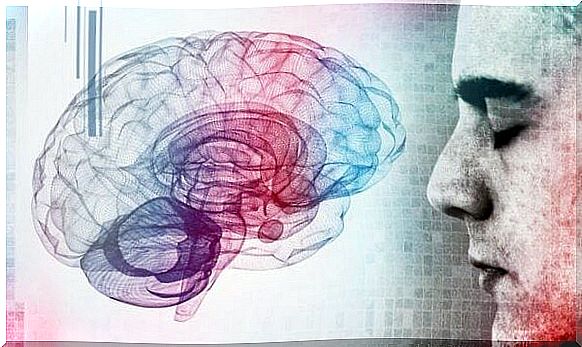Extreme Intelligence: The Dark Side We Are Not Talking About

Having extreme intelligence does not always guarantee success or happiness. There is another side of high IQ that we do not often talk about. There is existential anxiety, social isolation, emotional problems or continuous dissatisfaction with not reaching the high goals a person with such capacity sets.
Some people are quick to say that intelligence is not the same as wisdom and that the latter is something that many with IQ over 120-130 (but not all) lack.
Jeanne Siaud-Facchin – a psychotherapist and one of the most recognized experts on people with great abilities – explains that nothing can be as paradoxical as the brains of these people.
Having extreme intelligence involves a certain fragility. It is a type of mind that is capable of generating thousands of ideas at the same time. They are fast, original and can produce endless logical thinking and concepts in just seconds.
But they are not always capable of handling a lot of information. Their cognitive worlds have so much capacity that a simple stimulus is enough for the nerve cells to be triggered immediately and give rise to many ideas. But the truth is that they do not always succeed in giving concrete or even accurate answers.
All of this can create a lot of frustration and confusion. Life is not always fantastic and simple for a person or a child with extreme intelligence. No one has told them how to use their sophisticated brains, so productive and hungry for information.
Life actually gets a lot more complicated for people with an IQ of over 180. As we can see in the story of the world’s most intelligent man, with an IQ of 250, their lives can be pure tragedies.

We live in a society where people with special gifts are revered. We are fascinated by people with unique abilities and talents, we admire those who dominate a certain area in science, art, sports…
So much so that there is no shortage of mothers and fathers who say they would love to have a child with a high IQ, because the idea that high intelligence is synonymous with success still remains in society.
On the other hand, children can also be convinced that there is nothing better than “being very smart”. Children with the “gift” pass tests with good grades without trying or even studying. However, every educator, psychologist and parent of a child with great abilities knows that this is not necessarily true.
To begin with, it is very possible that the student with a high IQ goes unnoticed during a large part of his schooling. It is also likely that he does not get good grades, that he is not good at making friends and that he is a thoughtful student, very enclosed in his own world at the far end of the classroom, where he is not noticed.

The reason why extreme intelligence does not guarantee that you are always first in class is multifaceted. First, we have boredom. A child with great abilities does not feel interested or stimulated by the things in the environment and “disconnects”. They adopt a passive attitude that can lead to school failures.
In other cases, it is that the child can not control his ideas. Sometimes when answering a simple test question, the child may begin to babble, reflect and hint, and never answer the question.
In the book Too Smart to be Happy , a girl explains that when her classmates come up with something to solve something, she comes up with 25. She feels incapable of arriving at a conclusion.
- Branched thinking: a type of logical thinking performed by extremely intelligent people is called branched thinking. When one stimulus is received, the mind begins to generate one idea after another, but sometimes without clear associations. It creates a very thick branch with endless amounts of “branches” that the person can not control or organize.
Another aspect to consider is hypersensitivity. Being extremely intelligent means that you have a very deep and transcendent view of reality and the world.
Sometimes they can experience misunderstanding, anger and skepticism towards humanity just by watching the news. Emotions grip them. They cannot control the impact that these events have on them – events that go unnoticed by most people.
Things like lies and falsehood surprise them, as well as social injustice and war. It is overwhelming to feel that they may not be able to live up to the high-flying ideals they have in mind.

Contrary to the idea that extremely intelligent people are cold , their capacity for empathy is incredible. Therefore, they may prefer to isolate themselves so as not to suffer; to keep their distance so as not to get too involved and hurt in different ways.
Their emotional worlds are complex, but they also channel that intensity through creativity and inspiration.
We at this team may think that extreme intelligence is practically a disease, but that is not the case. Let’s reflect a little. A gifted child who goes through school unnoticed will develop scarce academic interest and live in personal isolation, where problems such as anxiety and depression can grow.
However, the World Health Organization gives us a warning: we should not just use IQ to “diagnose” talent. For intelligence can not be separated from emotions, but hypersensitivity,
Having extreme intelligence can mean living in a very private corner where emotions and thoughts are chaotic, deep and very intense.
Our role as parents, educators and psychologists is therefore to offer them appropriate strategies for finding balance and peace. Strategies to reach their potential – and happiness.







